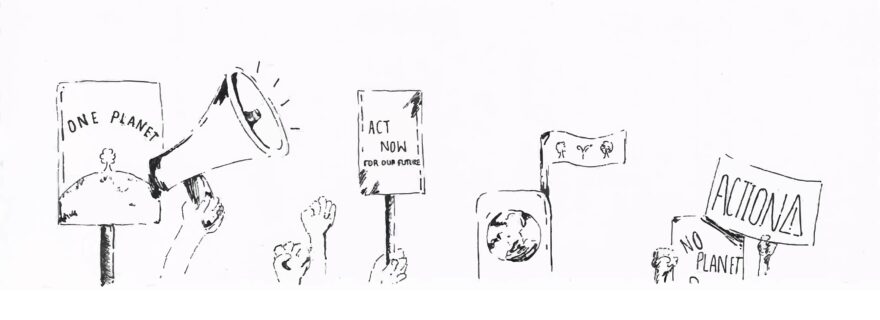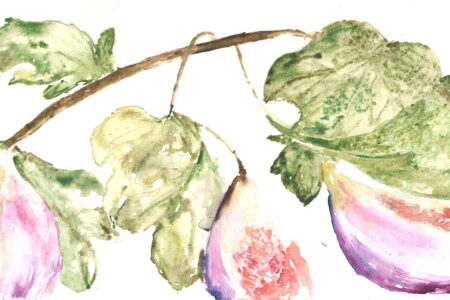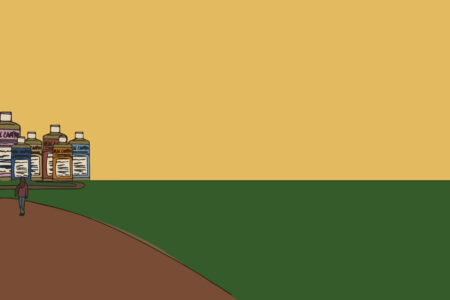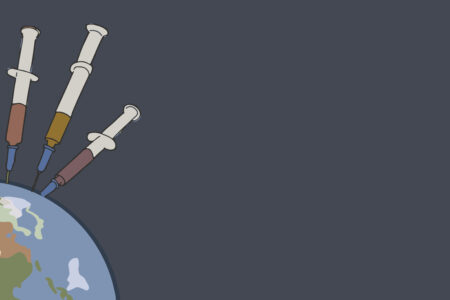The end of eternity
NOTE. This piece was written in November of 2022.
****
When Isaac Asimov wrote The End of Eternity, the future appeared to be optimistic (plot of the novel less so though). It was 1955, Stalin just died, decolonization was in a full swing, war in Korea ended, developed countries witnessed unprecedented economic growth and decreasing inequalities, breakthroughs in medicine materialised, the cultural revolutions started. Humankind was apparently heading into eternal glory and all people could dream big. Now, almost 65 years later, humankind is indeed better off in almost all aspects so, from one point of view, the dream materialised. This is a favourite argument of various climate sceptics disguised as optimists.
The problem is that now we can anticipate, albeit vaguely, the end of the life we know, the end of eternity as we have understood it since at least the Industrial Revolution – not metaphysical eternity with all those supernatural elements like heaven and hell. Here, obviously, nothing has changed, which may be why many conservative politicians do not care about the climate.
In this essay I will assume the role of a pessimist, or rather realistic, futurist. Realistic because during the writing of this essay humankind has proudly raised the atmospheric concentration of CO2 to 417.95 ppm and set the record in the Netherlands for the warmest 12th of November in measured history. Indeed, almost all pessimists from just a few years ago turned out to be realists, or even optimists. Briefly coming back to Asimov, he was not an optimist regarding the Earth, yet he held optimistic views about human civilisation, which in his novels continues to flourish in the year 47000. Beware of spoilers, but my misanthropic worldview does not allow me to believe that human-beings are capable of anything like that. I mean, theoretically we are, it is just that in contrast to Jesus Christ, we are turning water into shit, both literally and transcendentally.
All the progress we are witnessing has its origins in the Industrial Revolution. Since then, and not to our merit, it has been a purely automatic process which can be simplified to an inverse relationship in which we are improving while the Earth and its other inhabitants are suffering. I do not believe we can replicate this on other planets, luckily for them. I was raised under the large influence of the Star Trek franchise, with its motto to boldly go where no one has gone before and its beautiful idea of a not-too-distant future. The problem is that we are boldly going in the wrong direction. In Star Trek, this beautiful future emerged after a nuclear World War III which happened in the third decade of the 21st century (sic). Unfortunately, in the real world, we so rarely learn anything from our mistakes. Some argue that there have already been 77 years since the last world war, but does it matter if there are multiple active wars and genocides happening right now, and have been in every year since 1945? Besides, events which will happen during the collapse of the climate system will take all our miseries to a brand-new level. By the way, Star Trek was created in the heady days of the 1960s.
IN THE YEAR 2125
In the year 2125 – if man is still alive – if woman can survive – they may find that maybe it was not such a good idea to be born at all. (Kudos to all readers, if any, who understand the reference). Particularly in Southern Europe, the equatorial region, Asia or indeed any other place on planet Earth. Nonetheless, for the sake of relatability, let’s assume that it is Delft, Republic of the Netherlands. The inquisitive reader might ask why Delft is not now located under the Northern Sea? Because a recent study showed that it should be possible to protect at least part of the country even if sea level rises by 5 metres. In this case I am the optimist: We zijn een nuchter volkje afterall. The trait of being down-to-earth may be important in 2125 as, unlike in the neighbouring countries and in most of the former European Union, there have been no refugee- and hunger-caused civil wars yet. However, it may not be due to being down-to-earth, but rather because of the decimated population. I forgot to mention a few pandemics of bird and pig flu originating in the dense Dutch animal husbandry of the late 2040s. Johan Remkes met his Waterloo when the new Dutch far right government (VVD-CDA-PVV) decided to scrap nitrogen policies around 2030. So those pandemics happened when we were well past exceeding many environmental tipping points. Because of this they did not slow climate change and in 2125 the CO2 concentration amounts to 750 ppm and the temperature is +3 degrees Celsius.
Delft is a special city because of TU Delft. Here were invented the first solar cell with an efficiency of 50% as well as the first Dutch nuclear bomb. Both turned out to be useful for keeping the Netherlands afloat during the second half of 21st century. The Netherlands is no longer a democracy, in fact, no country is anymore. Delft is also special because it is home to the biggest factory producing food rations with a constant energy content of 1500 kilocalories. All these rations have the uniform colour of the Soylent Green while the recipe is kept secret, leading to wild rumours. Every evening these rations are distributed by the police. Nobody is complaining though, because in the Netherlands people can eat and the last famine happened more than 5 years ago and was relatively mild. Especially when compared with the rest of Europe. Also 39 degrees on 13th of November is nice weather. The mood is good today, even in the thousands of tents belonging to climate refugees that surround the heavily guarded electric fence of the TU Delft campus. Lately, the number of refugees has been decreasing due to heat waves and another pandemic. This is not surprising really, as 1500 kilocalorie is not enough to sustain a healthy body and there is no universal healthcare, in fact there is no official healthcare at all unless you are a part of the elite. From time to time, violent conflicts erupt among refugees but the police do not intervene, why should they after all? The country has difficulties with feeding so many peoples anyway. Any rare protests against the government are brutally pacified. Desperate times call for desperate measures. After all, the Dutch elite living in air-conditioned villas of Bloemendaal and Wassenaar want their stability. They are acutely aware of what happened to some of their counterparts in the rest of the world. Besides, the constant hot weather and azure skies lead to a lazy, vegetative way of thinking among all the population. It can get only worse, why should we care, let’s find the bright side of this agony. Let’s live for today. The end of eternity already came.
...
Is such a future probable? Maybe, but it is impossible to predict what may happen. However, I believe that such future is more probable that the future projected by optimists e.g., warmer climate will lead to higher crop yield and there will be more land area due to disappearance of glaciers. Such ideas are simultaneously truisms and follies because their preachers ignore other aspects which are parts of the scientific consensus. Are we as human beings capable of common sense and keeping the global warming not higher than 2 degrees? I doubt it, but I think it is possible. Afterall, I could have spent this sunny Sunday afternoon on more amusing activities than the writing of this piece. I guess this is the ultimate proof that at least I hope for the positive resolution of all the COPs and endless discussions.
If these hopes turn out to be futile, it is still possible that society will adjust to new life conditions, and we will enter the new epoch stronger and richer in both wisdom and knowledge. We were able to achieve at least one goal related to the climate – thanks to the Montreal Protocol, the rolling damage to the ozone layer effectively stopped.
Who knows? Maybe our future is bright. But one thing is sure, we must be united in putting pressure on policy makers, firms, billionaires, and public figures. Finally, really, it is not that difficult to become a vegan or to limit flying. Also, those activists gluing themselves to paintings have more courage than most of us, so stop ridiculing them, get your ass up and do something instead of complaining. At least for your own future if you don’t care about future generations. Experiencing wet-bulb temperature is no longer a remote perspective for our generation.





0 Comments